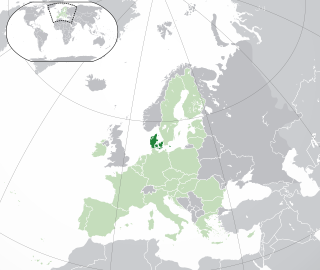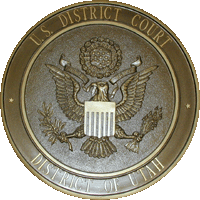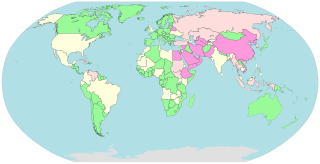An Internet filter is software that restricts or controls the content an Internet user is capable to access, especially when utilized to restrict material delivered over the Internet via the Web, Email, or other means. Content-control software determines what content will be available or be blocked.
Internet censorship in Australia is enforced by both the country's criminal law as well as voluntarily enacted by internet service providers. The Australian Communications and Media Authority (ACMA) has the power to enforce content restrictions on Internet content hosted within Australia, and maintain a blocklist of overseas websites which is then provided for use in filtering software. The restrictions focus primarily on child pornography, sexual violence, and other illegal activities, compiled as a result of a consumer complaints process.
Freedom of speech and freedom of the press in Denmark are ensured by § 77 of the constitution:

Internet censorship is the legal control or suppression of what can be accessed, published, or viewed on the Internet. Censorship is most often applied to specific internet domains but exceptionally may extend to all Internet resources located outside the jurisdiction of the censoring state. Internet censorship may also put restrictions on what information can be made internet accessible. Organizations providing internet access – such as schools and libraries – may choose to preclude access to material that they consider undesirable, offensive, age-inappropriate or even illegal, and regard this as ethical behaviour rather than censorship. Individuals and organizations may engage in self-censorship of material they publish, for moral, religious, or business reasons, to conform to societal norms, political views, due to intimidation, or out of fear of legal or other consequences.
Internet censorship in the United Kingdom is conducted under a variety of laws, judicial processes, administrative regulations and voluntary arrangements. It is achieved by blocking access to sites as well as the use of laws that criminalise publication or possession of certain types of material. These include English defamation law, the Copyright law of the United Kingdom, regulations against incitement to terrorism and child pornography.
According to research done by the Organisation for Economic Co-operation and Development (OECD), the Netherlands is ranked with Switzerland in having the most broadband subscriptions per 100 inhabitants, has no bandwidth caps, and has the most homes passed in Europe in terms of connection speeds of 50 Mbit/s and higher.

In an international context Denmark is viewed as a somewhat peculiar country when it comes to internet access. The former state owned telephone company TDC owns the entire last mile infrastructure in terms of copper telephone lines and the vast majority of the coaxial cable infrastructure as well. Even though the Danish telecommunications infrastructure is very heavily dominated by one company, Danish internet customers still enjoy fair prices and a wide availability of different next generation access internet connections in comparison with most other EU countries. Furthermore, TDCs de facto monopoly on last mile infrastructure has come under attack. In the last decade regional power companies have formed national business alliances aimed at implementing FTTH for private and business end users.
The Internet in Norway is available through Fiber or Mobile. The country code top level domain is .no.
The Internet in Sweden was used by 94.0% of the population, the fourth highest usage rate in the world, behind only the Falkland Islands (96.9%), Iceland (96.0%), and Norway (95%) in 2015. Sweden ranks 18th and 5th highest in the world in terms of the percentage of its fixed and wireless broadband subscriptions. It has the second fastest average internet connection speed in the world.
Censorship in Finland refers to government policies in controlling and regulating certain information.
Internet filtering in Indonesia was deemed "substantial" in the social arena, "selective" in the political and internet tools arenas, and there was no evidence of filtering in the conflict/security arena by the OpenNet Initiative in 2011 based on testing done during 2009 and 2010. Testing also showed that Internet filtering in Indonesia is unsystematic and inconsistent, illustrated by the differences found in the level of filtering between ISPs. Indonesia was rated "partly free" in Freedom on the Net 2020 with a score of 49, midway between the end of the "free" range at 30 and the start of the "not free" range at 60.

This is a list on countries where at least one internet service provider (ISP) formerly or currently censors the popular file sharing website The Pirate Bay (TPB).

Florence v. Shurtleff, Civil No. 2:05CV000485, was a case in which the U.S. District Court for the District of Utah issued an order stating that individuals could not be prosecuted for posting adult content that was constitutionally protected on general access websites, nor could they be civilly liable for failing to prevent access to adult content, so long as the material is identifiable by filtering software. The order was the result of a 2005 lawsuit, The King's English v. Shurtleff, brought by Utah bookstores, artists, Internet Service Providers and the other organizations challenging the constitutionality of certain portions of a Utah law intended to protect minors from adult content.
The precise number of websites blocked in the United Kingdom is unknown. Blocking techniques vary from one Internet service provider (ISP) to another with some sites or specific URLs blocked by some ISPs and not others. Websites and services are blocked using a combination of data feeds from private content-control technology companies, government agencies, NGOs, court orders in conjunction with the service administrators who may or may not have the power to unblock, additionally block, appeal or recategorise blocked content.
The child abuse image content list is a list of URLs and image hashes provided by the Internet Watch Foundation to its partners to enable the blocking of child pornography & criminally obscene adult content in the UK and by major international technology companies.
Internet censorship in Switzerland is regulated by the Federal Supreme Court of Switzerland on a case by case basis. Internet services provided by the registered with BAKOM Internet service providers (ISPs) are subject to a "voluntary recommendation" by the Federal Supreme Court of Switzerland, which requires blocking of websites just after 18 December 2007. As of October 2015, this might change soon and additional topics like Online gambling are on the focus now.

This list of Internet censorship and surveillance in Europe provides information on the types and levels of Internet censorship and surveillance that is occurring in countries in Europe.

This list of Internet censorship and surveillance in Asia provides information on the types and levels of Internet censorship and surveillance that is occurring in countries in Asia.

This list of Internet censorship and surveillance in the Americas provides information on the types and levels of Internet censorship and surveillance that is occurring in countries in the Americas.

This list of Internet censorship and surveillance in Oceania provides information on the types and levels of Internet censorship and surveillance that is occurring in countries in Oceania.





